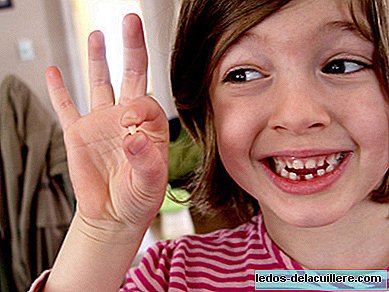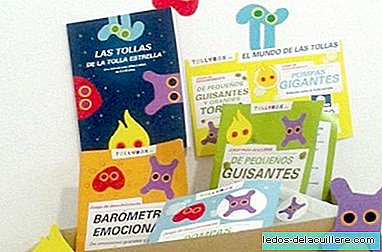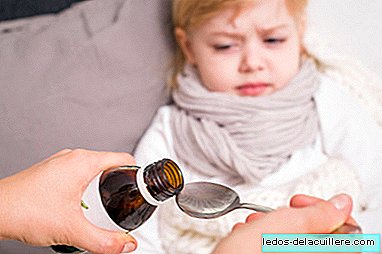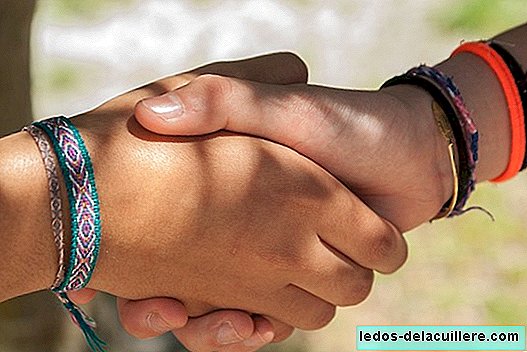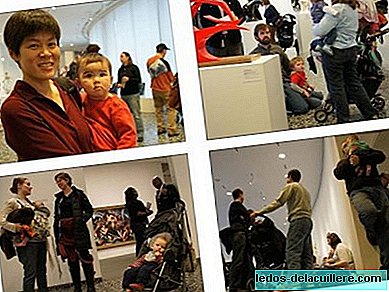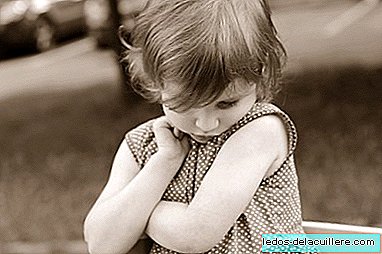Three days ago it was reported that there was already a date for the entry of the chickenpox vaccine into the state vaccine schedule: the year 2016. From then on (although Madrid seems to arrive earlier) the chickenpox vaccine will be given to all Spanish babies at 12-15 months.
Following this news, the OCU issued a statement 2 days ago in which it claims that vaccinating children under 12 is a decision that It has no scientific justification. So now parents are in the dilemma of what to do: Do we give the vaccine or do not give it? And if we don't want to wear it, what do we do?
What the OCU statement says
The OCU statement states that science does not support the decision made by the Spanish government, vaccinating chickenpox before age 12, because it is a normally benign disease that, after suffering, has immunity for life. Up to 12 years, 90% of children usually pass it, leaving 10% who are then vaccinated to prevent them from suffering the disease in adulthood, when the infection progresses with a worse prognosis.
This is what the Spanish Society of Public Health and Health Administration (SESPAS) also said two days ago in a statement that suggests that everything is a hurried political turn, at there is no new scientific evidence since in 2011 the completely opposite decision was taken: to make the vaccine disappear from pharmacies.
This communiqué (and that of the OCU) also explains that the majority of countries in Europe do not vaccinate the entire population, but instead choose the solution to vaccinate at 12 years (yes Germany, Austria, Greece, Cyprus vaccine , Latvia and Luxembourg).
And they add that Universal vaccination generates many doubts at the epidemiological level, not knowing what will happen to the virus and the population:
- The duration of immunity beyond 14 years is unknown.
- The optimal timing of the second dose is unknown; the decision to revaccinate at 3-4 years seems random.
- It is not known if additional doses will be needed in the future to maintain immunity, while natural disease produces lifelong immunity.
- It is not known if the vaccine will displace the existence of cases at older ages, therefore potentially more serious cases.
- There is no estimate of the severity of cases in vaccinated, when they are older or poorly immunized.
- It is possible that complications from the disease increase as the average age of infection increases.
- There is no plausible assessment of the immune mechanism of herpes zoster.
- The impact of vaccination on the frequency of cases of herpes zoster is unknown, especially in the unvaccinated.
Other official communications in this regard
If something is clear, there is no consensus about it. And the fact of politicizing health does not benefit the process, because now that the elections are approaching it is announced that the chickenpox vaccine comes back and of course, the opposition does what it touches, to oppose (some PSOE advisors said they disagree with this political decision).
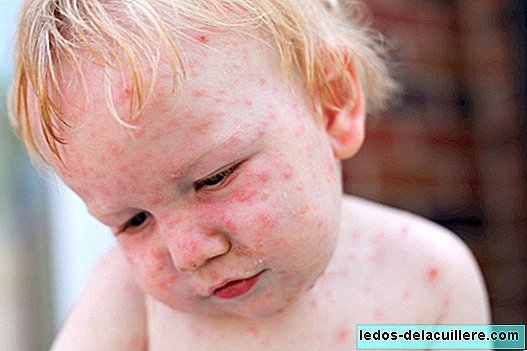
However, from the moment it was learned that the chickenpox vaccine disappeared from pharmacies, back in 2013, the Vaccine Advisory Committee of the Spanish Association of Pediatrics (AEP), the Spanish Association of Vaccination (AEV) and The Spanish Society of Preventive Medicine, Public Health and Hygiene (SEMPSPH) signed a joint statement that read as follows:
"VARICEL VACCINE WEAKNESS IN SPANISH PHARMACY OFFICES"The scientific societies most linked to the use of vaccines express our strangeness and concern about the shortage of varicella vaccines that are being produced in numerous Spanish pharmacy offices.
In Spain two varicella vaccines are registered. One of these vaccines (Varilrix®) is restricted to hospital use, in our opinion in an unjustified way, especially after the recent modification of its data sheet. The other vaccine (Varivax®) was available until recently at the pharmacy offices.
At the moment, we have no official knowledge, that is, on the part of the Ministry of Health or the Spanish Agency of Medicines and Health Products (AEMPS), of any circumstance that explains this shortage, as it could be an eventual production problem, of distribution or security.
The shortage is occurring in most of the autonomous communities, although not in all. The Varivax® manufacturing laboratory reports that it has lots of vaccines available, but that are withheld. We hope that the Ministry of Health and AEMPS will express themselves as soon as possible and, above all, that this anomalous and strange situation can be ended.
Vaccination against chickenpox in early childhood, that is, since 12 months of age, has proven beneficial in numerous studies and countries with universal vaccination, such as the United States, Canada, Australia, Uruguay, as well as European countries such as Germany , Greece, Latvia and some Italian regions. In the rest of European countries, the vaccine is available at the pharmacy offices for free prescription.
In Spain, only two autonomous communities (Madrid and Navarra) and the autonomous cities (Ceuta and Melilla) vaccinate children free of charge in the second year of life. The effectiveness data reported by the communities of Madrid and Navarra, where universal vaccination has been implemented since 2006 and 2007 respectively, are spectacular. In the rest of the communities it is vaccinated from 12 years old, age at which 90% of children have already passed chickenpox naturally (up to 15% of cases with some type of complication) or have been vaccinated following the recommendations of the CAV of the AEP. With this shortage in communities without funded vaccination, those people who decide their employment are deprived of the use of this medical device and its demonstrated benefits following the recommendations recommended by their doctors.
And then, what are we?
True, most countries in Europe have not made the decision that Spain has taken, but some have, as do countries like the United States and Canada, with a brutal number of vaccinated children. The US, for example, has been managing it since 1995 and Canada decided to do it in 1999. This gives enough data to be able to make a decision in Spain, 20 years after the Americans took it.
We know, from a study published in 2003 in Annals of Continuing Pediatrics that:
- Chickenpox is a disease with a high morbidity, usually benign, but that presents complications, sometimes serious and can even endanger the patient's life.
- Complications are more frequent in some risk populations, such as immunocompromised patients with pneumopathies or chronic skin diseases, the pregnant (due to its embryonic and fetal involvement), the child during the first year of life (especially in the neonatal period), the adolescent and the adult.
- The vaccine induces seroconversion in more than 95% of healthy children between 12 months and 12 years of age, and also causes a specific cellular response ... Studies conducted in the United States and Japan indicate an immunity duration of at least 11 and 20 years after vaccination, respectively.
- Since the introduction of the vaccine in the United States in 1995, the incidence of chickenpox has been greatly reduced. According to a study conducted in three populations with vaccine coverage of between 74 and 84%, decreases of 71, 79 and 84% have been observed in all age groups.
- Chickenpox has important social and economic effects. When considering both the direct costs caused by the disease and its complications as well as the indirect costs, generated by the high absenteeism of the schoolchild or of the sick adult and of the parents or other persons in charge of the care of the child, it is observed that the benefit-cost ratio of immunization is favorable.
We know, from a study conducted in Navarra, published in 2012, where universal vaccination was approved since 2007, that vaccination with 2 doses to children at 15 months and 3 years reduced the prevalence of chickenpox in children 0 to 14 years in 98.1%, from 50.1 cases per 1,000 population in 2006, to 1.0 per 1,000 in 2012.
By controlling the virus in childhood, not only was the risk of vaccinated children catching the disease reduced, but indirectly they managed to reduce the risk of suffering from the disease to the unvaccinated population (under one year and older), as we can see in the following table:

We also know, because two years ago we analyzed some studies that talked about it, that Universal vaccination does not seem to be associated with an increase in cases of herpes zoster.
The logic also says that the risk of suffering from herpes should be lower, as it is a consequence of chickenpox: once you have chickenpox, the virus remains dormant, dormant, in some nerves of the body. If over the years it is reactivated, herpes occurs. But If you are vaccinated and do not get chickenpox, it is impossible for the virus to remain in the nerves. Of course, this is what the logic says, and in medicine 2 and 2 they do not always add up to 4: if a child receives two vaccines and then is infected by the chickenpox virus, a virtually asymptomatic chickenpox can pass (perhaps even with one or two blisters that parents can not even see) and then, yes, have varicella-zoster virus in the body (although the incidence should be lower than in countries without vaccine, of course).
And we know that, as the decision to vaccinate Spanish children universally has been taken 20 years after they took it in the US, the experiences they live there regarding the vaccine serve as a test bench: if the vaccinated children of the USA, already adults, begin to suffer the disease because the protection has disappeared, it will be established a new dose of remembrance in adulthood. That new dose will be administered there and, obviously, also here, before our children, now vaccinated, are unprotected. Let's say that one is the benefits of doing things later than in other countries.
So with all this information, let each father and mother decide what to do with their child, whether to vaccinate him or not. If the decision is no, just tell the nurse or pediatrician: "I do not want to vaccinate my child with chickenpox." The most that will happen is that they give you a sign sheet according to the denial of a treatment indicated for your child, but nothing more, because vaccines are not mandatory.
Photos | iStock
In Babies and more | Chickenpox in children: everything you need to know, The Ministry of Health asks parents not to vaccinate for chickenpox and Sanofi denounces them for blocking the vaccine, The chickenpox vaccine returns to pharmacies


